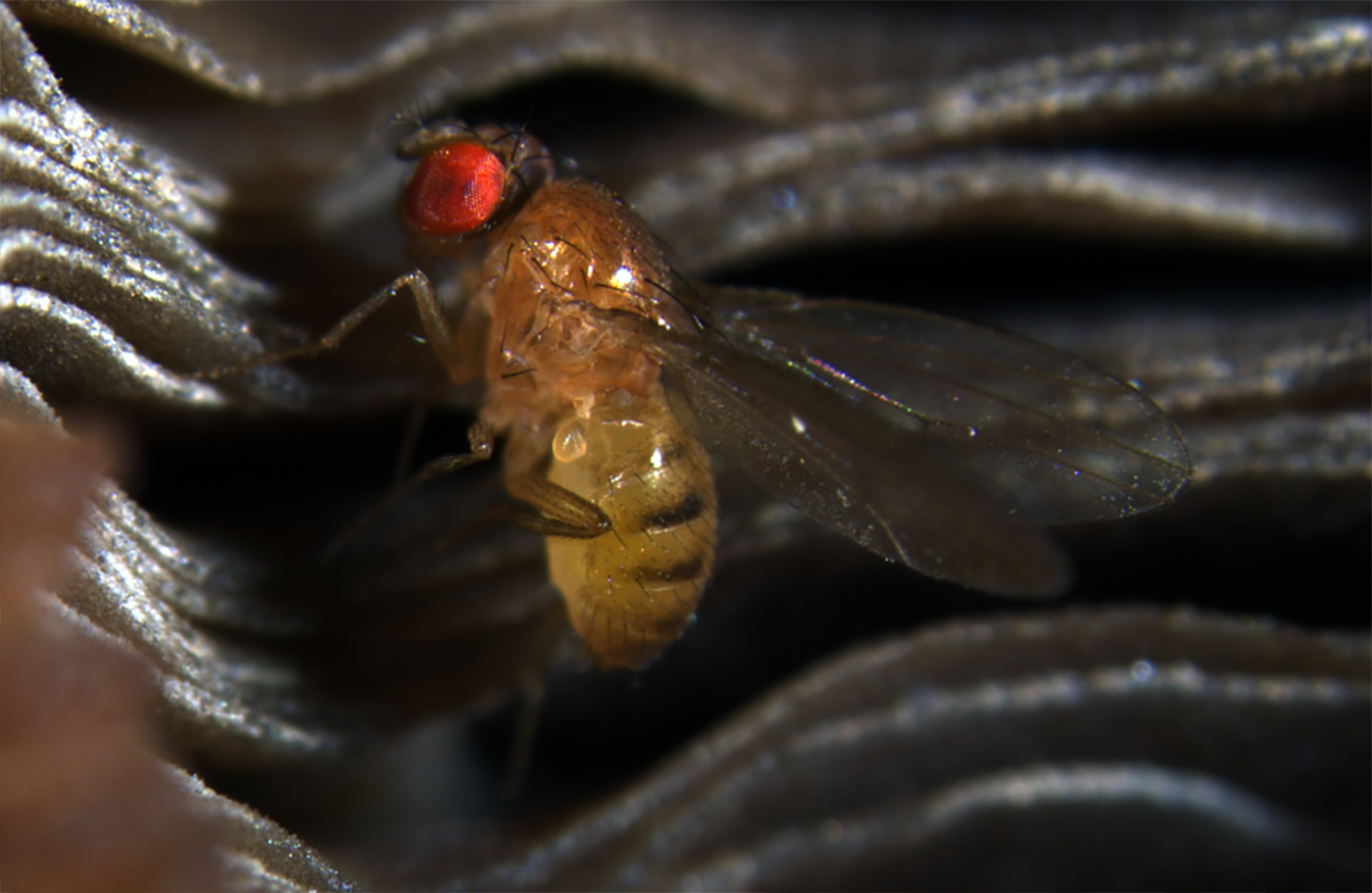First chromosome that cheats in both sexes identified in fruit flies
May 9, 2025

May 9, 2025

Some genes just don’t play fair.
Researchers have uncovered a ‘selfish’ X chromosome in the fruit fly Drosophila testacea that manages to distort inheritance in both sperm and eggs.
“Researchers have known about these selfish genes in males for nearly 100 years, and they've become textbook examples of how genes can be in conflict with one another,” says Graeme Keais, a PhD student at the University of British Columba (UBC) and lead author of the study published in PNAS. “But until now, we’ve only ever seen a particular gene cheat either in males or females — never in both.”
Chromosomes carry an organism's genetic information in the form of DNA—accurately copying the blueprint down from parents to offspring during cell division and reproduction.
Cells divide to form eggs and sperm in a process call meiosis. Typically, chromosomes within those cells have an equal chance of being passed on to the next generation. But some chromosomes have genetic elements, known as meiotic drivers, that bend the rules of inheritance during meiosis to increase their odds of survival.
https://youtube.com/shorts/8M_tL2mGRhc?feature=share
The study, led by scientists at UBC and the University of Victoria, determined that the X chromosome in the widespread Palearctic woodland fly eliminates Y-bearing sperm, ensuring that more offspring inherit it. In females, it is preferentially included in the egg.
“The ability to hijack meiosis in the very different contexts of male germ cells and oocytes is remarkable,” says Dr. Steve Perlman, a biologist at the University of Victoria who led the research team. “It highlights the remarkable diversity of selfish genetic elements, with far-reaching implications for how genetic conflict shapes the architecture of genomes.”
This particular selfish X chromosome is structurally unusual. It behaves like a supergene, meaning it contains a large block of DNA that no longer mixes with its normal X chromosome counterpart.
As a result, it has expanded to nearly twice the size of a typical X chromosome, accumulating chunks of repetitive DNA along the way. Some of these repetitive sequences may directly contribute to its ability to cheat during female reproduction.
The findings suggest that non-mixing regions of the genome — such as supergenes — may have an under-appreciated interplay with the evolution of selfish genes.
We honour xwməθkwəy̓ əm (Musqueam) on whose ancestral, unceded territory UBC Vancouver is situated. UBC Science is committed to building meaningful relationships with Indigenous peoples so we can advance Reconciliation and ensure traditional ways of knowing enrich our teaching and research.
Learn more: Musqueam First Nation